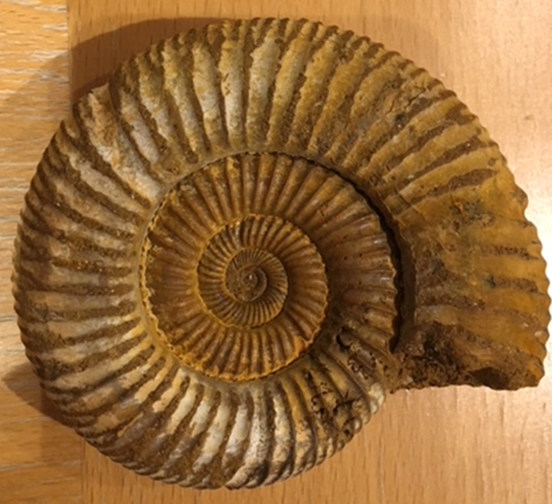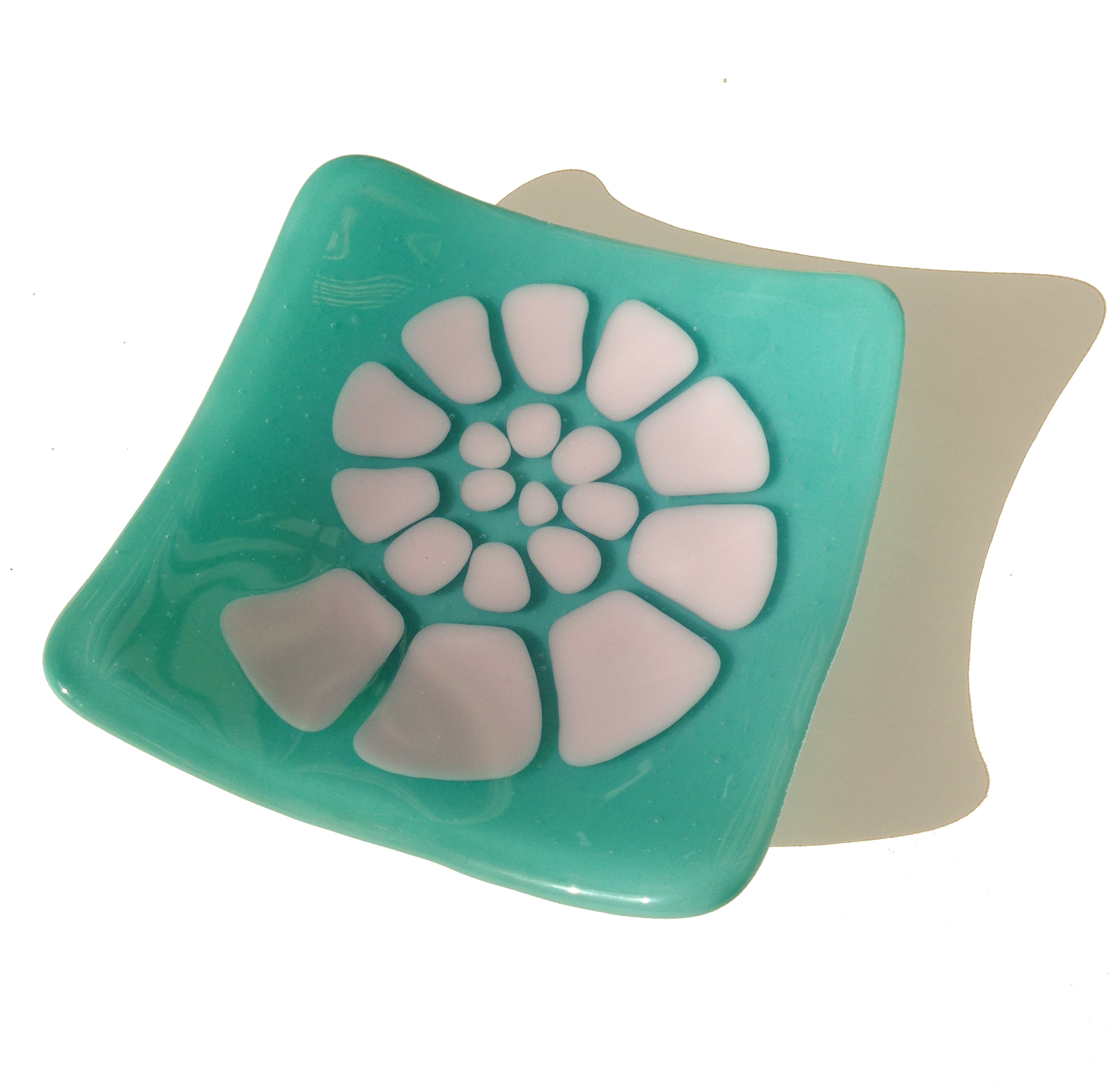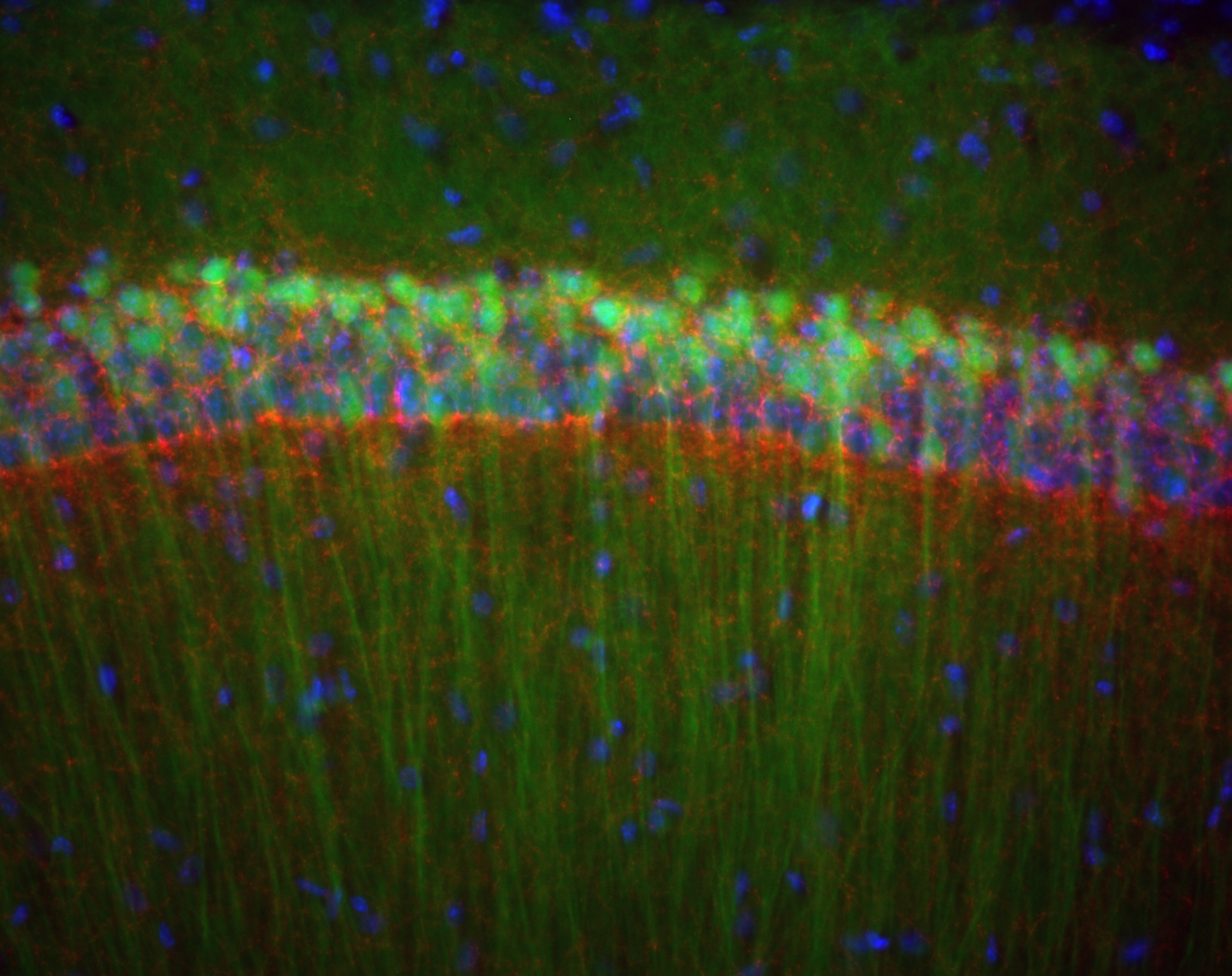
The other meaning is cornu ammonis, the horn of Ammon. Ammon was the Egyptian ram-god, and gave his name not just to ammonites, but to a part of the brain called the hippocampus (hippocampus means sea-horse). The cornu ammonis part of the hippocampus has been the focus of my research for many years. It is also very beautiful and mysterious (see the picture on the left).
Neurons in the cornu ammonis region of the hippocampus. Photo Source: National Institutes of Health (NIH) Creator: Margaret I. Davis

About ammonites
The word "ammonite" has two meanings for me, which is why I chose it to represent my art.
The first and best known meaning is the fossil in the picture on the right. Ammonites were once very plentiful on Earth and the oceans teemed with them, but then they all died out. I feel they teach us an important lesson about the fragility and impermanence of existence. Plus, they are lovely to look at.
The word "ammonite" has two meanings for me, which is why I chose it to represent my art.
The first and best known meaning is the fossil in the picture on the right. Ammonites were once very plentiful on Earth and the oceans teemed with them, but then they all died out. I feel they teach us an important lesson about the fragility and impermanence of existence. Plus, they are lovely to look at.

Roman cast terracotta of ram-horned Jupiter Ammon, 1st century AD (Museo Barracco, Rome)Photo Source: Lalupa, ShareAlike 3.0 Unported (CC BY-SA 3.0)
